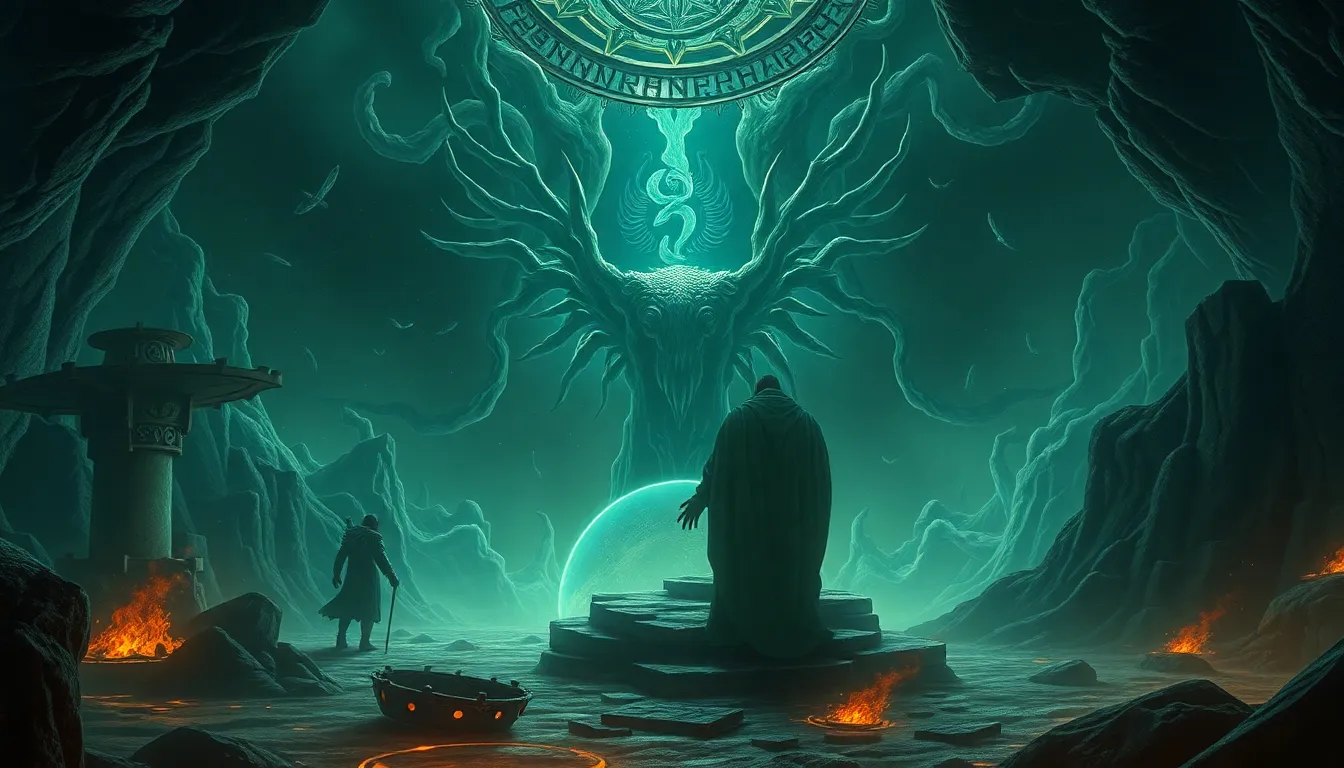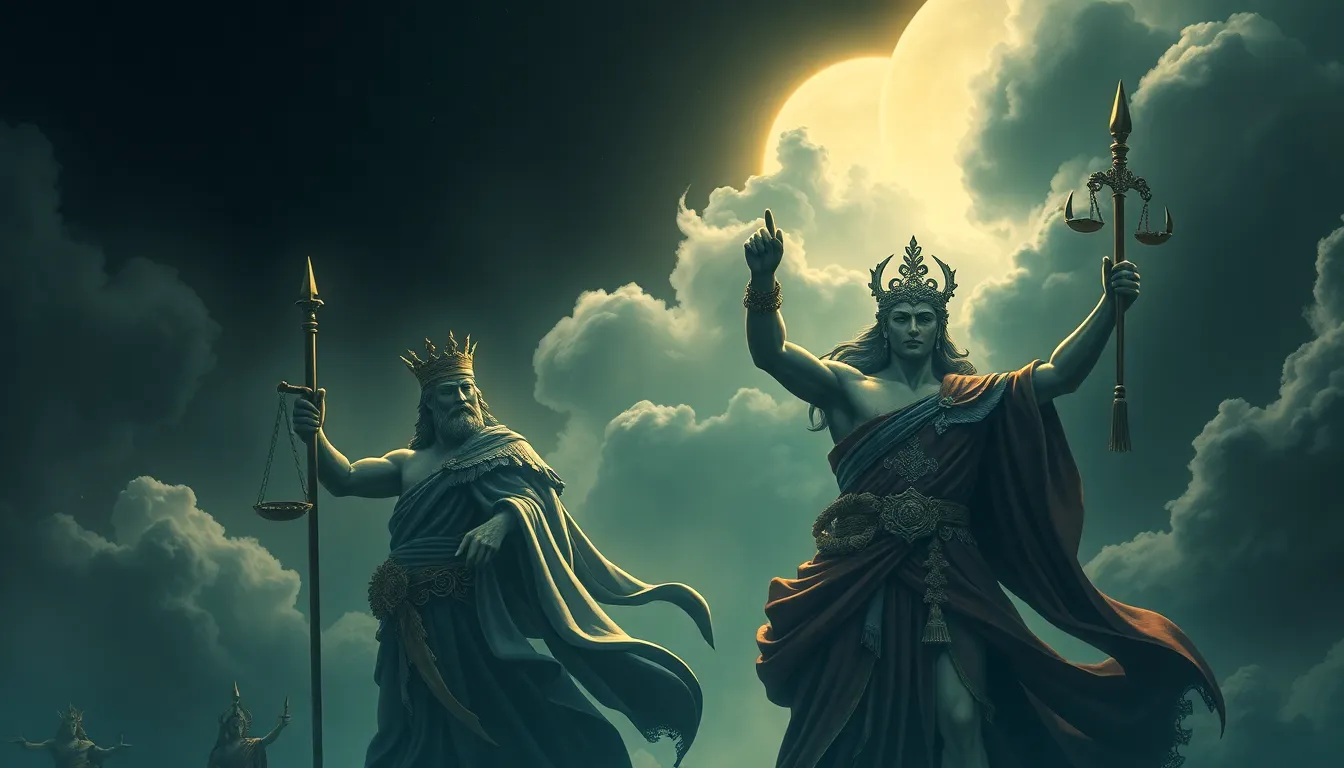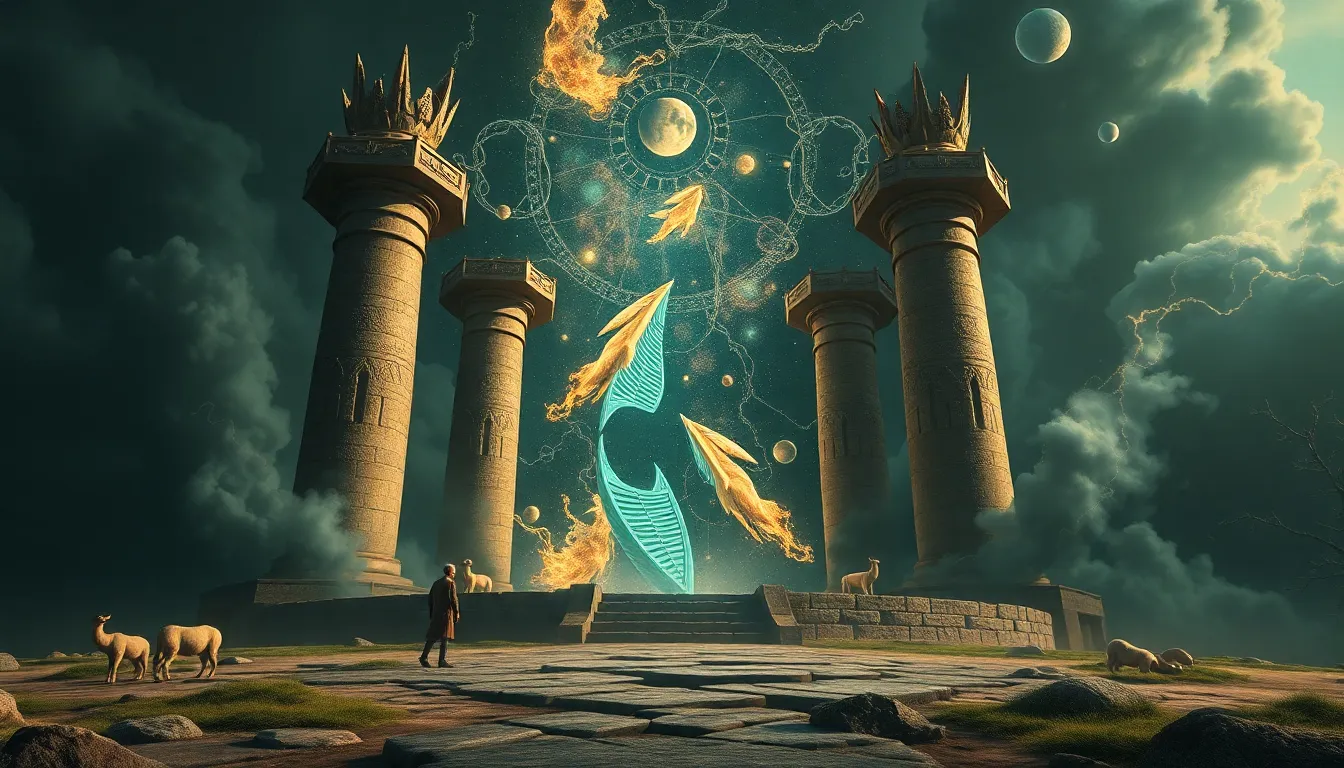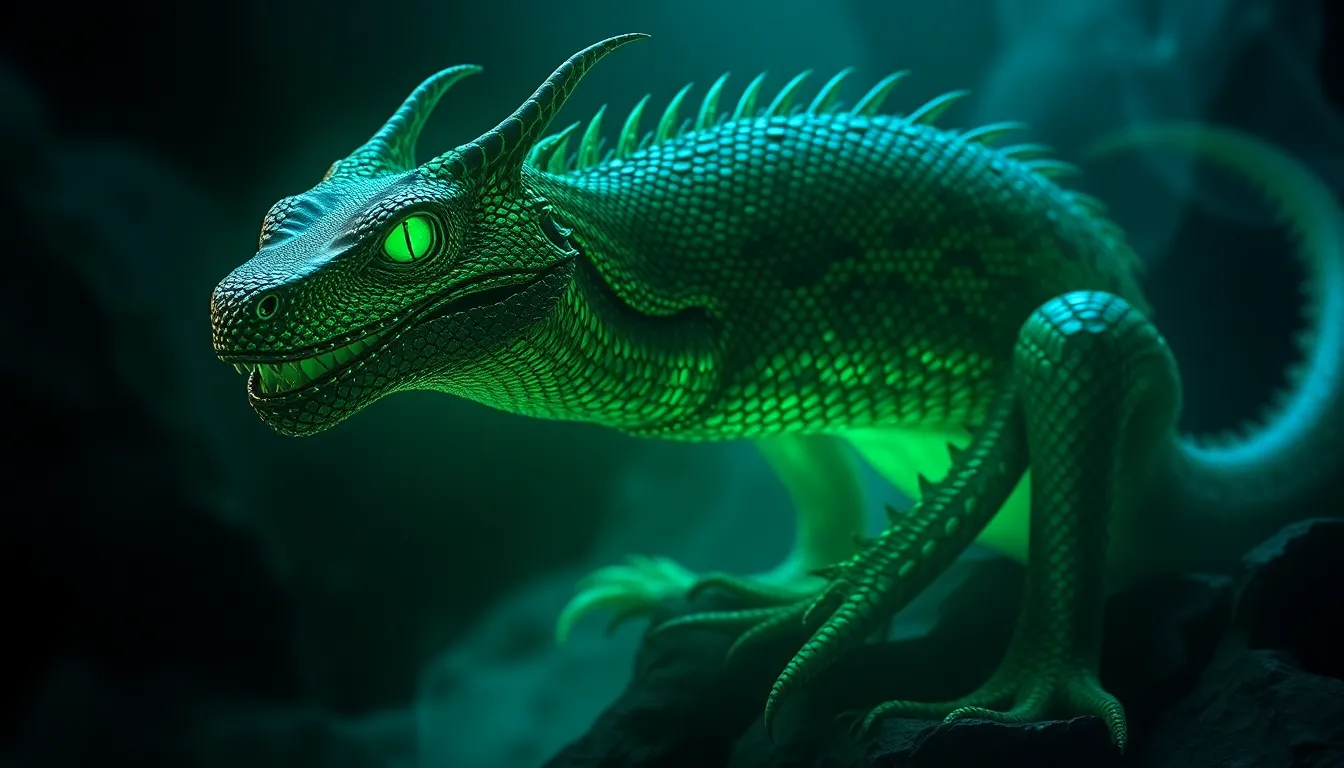Legends of the Underworld: The Myths That Shape Our Destiny
Introduction: The Allure of the Underworld
The concept of the underworld has fascinated humanity for millennia, serving as a profound and complex symbol across various cultures. Often depicted as a shadowy realm beneath the earth, the underworld is a place of mystery and fear, yet also of hope and transformation. It represents the final resting place of souls and the gateway to the afterlife, embodying humanity’s deepest fears and desires about death and existence.
Throughout history, myths associated with the underworld have provided insights into the spiritual beliefs and values of societies. They offer narratives that help explain the nature of life, death, and what may lie beyond, shaping cultural identities and moral frameworks.
Historical Context: The Evolution of Underworld Myths
Underworld myths have evolved significantly over time, reflecting the beliefs of ancient civilizations. In Mesopotamia, for example, the underworld, known as Kur, was depicted as a dark and dreary place ruled by the goddess Ereshkigal. The ancient Egyptians envisioned the afterlife as a journey through the Duat, where the deceased would face judgment from Osiris, the god of the underworld.
In ancient Greece, the underworld was personified by Hades, who ruled over the realm of the dead, where souls were judged and assigned to their respective places. Each culture’s depiction of the underworld reveals its values, fears, and the societal role of the afterlife.
Key Figures of the Underworld: Gods, Goddesses, and Spirits
Many prominent deities are associated with the underworld across various cultures, each embodying unique characteristics and narratives:
- Hades: The Greek god of the underworld, Hades is often depicted as a stern and unyielding figure, overseeing the souls of the dead.
- Osiris: In Egyptian mythology, Osiris is the god of resurrection and the afterlife, symbolizing hope and the promise of rebirth.
- Yama: In Hindu mythology, Yama is the god of death and the underworld, who judges the souls and determines their next incarnation.
These figures encapsulate the complexities of life and death, offering narratives that resonate with the human experience.
Concepts of Afterlife: Visions from Various Cultures
Beliefs about the afterlife vary widely across cultures, often reflecting differing moral and philosophical perspectives:
- Heaven and Hell: In many Western religions, the afterlife is divided into heaven and hell, representing eternal reward or punishment based on earthly actions.
- Reincarnation: In Hinduism and Buddhism, the belief in reincarnation emphasizes the cyclical nature of life, where souls are reborn based on karma.
- Valhalla: In Norse mythology, warriors who die honorably are welcomed to Valhalla, a paradise where they feast until the end of the world.
These diverse beliefs highlight the moral implications embedded in underworld myths, influencing societal norms and personal behavior.
Underworld Journeys: Heroic Quests and Trials
Many myths feature heroes who embark on journeys to the underworld, facing trials that test their character and resolve. Notable examples include:
- Orpheus: In Greek mythology, Orpheus descends into the underworld to retrieve his wife, Eurydice, showcasing the power of love and music.
- Dante: In “The Divine Comedy,” Dante’s journey through the inferno serves as an allegory for the soul’s quest for redemption.
The symbolism of these journeys often represents personal growth, as heroes confront their fears and emerge transformed by their experiences.
The Underworld as a Reflection of Human Experience
Underworld myths serve as mirrors reflecting the human experience, addressing fundamental fears and existential questions. They delve into themes such as:
- The fear of death and the unknown
- The struggle for meaning in life
- The quest for redemption and forgiveness
These narratives provide psychological insights into how individuals and societies confront mortality, loss, and the quest for purpose.
Cultural Adaptations: Underworld Myths in Modern Media
In contemporary society, underworld themes continue to resonate, appearing in various forms of media. Literature, film, and art often reinterpret ancient myths, highlighting their enduring relevance. Examples include:
- Film: Movies like “What Dreams May Come” and “The Lovely Bones” explore afterlife themes, reflecting modern anxieties about death.
- Literature: Novels such as “The Inferno” by Dan Brown draw inspiration from Dante’s journey, bringing classic themes to new audiences.
- Video Games: Games like “Hades” allow players to interact with underworld figures, blending mythology with immersive storytelling.
These adaptations illustrate how ancient myths can be reimagined to address contemporary issues and cultural narratives.
The Role of the Underworld in Shaping Morality and Ethics
Underworld myths have historically influenced moral decisions and societal norms. They serve as cautionary tales, illustrating the consequences of actions:
- In Greek mythology, the story of Prometheus warns against defiance of divine authority.
- The Egyptian concept of Ma’at emphasizes truth and justice, shaping ethical behavior.
- In Christianity, the idea of hell serves as a moral deterrent against sin.
These myths reinforce ethical frameworks that guide societal conduct and personal responsibility.
Legends of the Underworld: Lessons for Contemporary Society
As modern society grapples with various challenges, the lessons embedded in underworld myths remain relevant. They can offer guidance in addressing:
- Environmental crises, through reflections on humanity’s relationship with nature.
- Social justice, by emphasizing the moral consequences of actions.
- Personal growth, encouraging individuals to confront their fears and seek transformation.
These legends can inspire collective action and personal reflection, guiding us toward a more ethical and fulfilling existence.
Conclusion: The Enduring Power of Underworld Myths
In conclusion, the myths of the underworld hold a timeless significance, shaping our understanding of life, death, and morality. They reflect our deepest fears and aspirations, offering insights into the human condition. By examining these legends, we can gain a greater appreciation for their role in shaping our worldview and destiny. Understanding the allure of the underworld can empower us to confront our existential questions and navigate the complexities of life.



